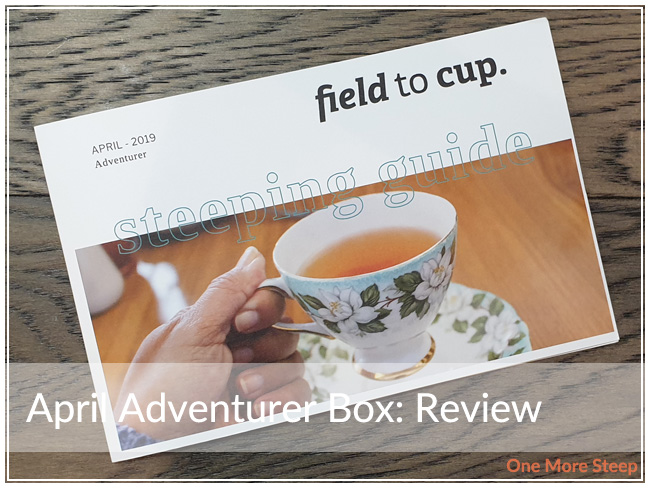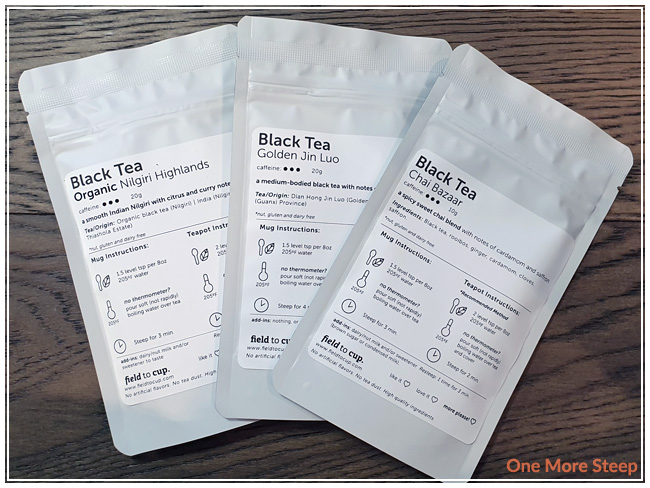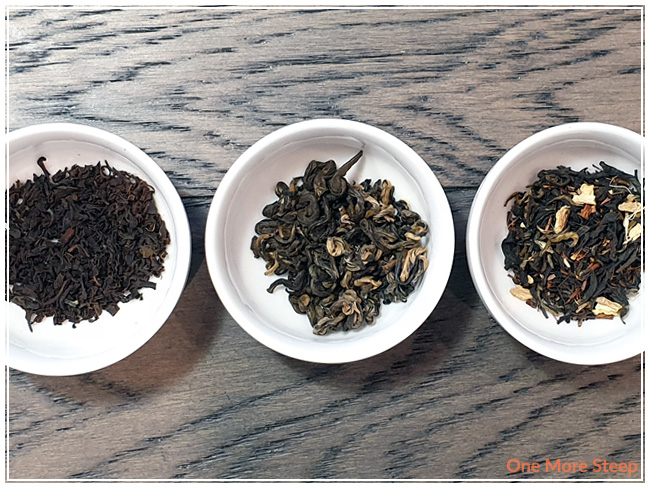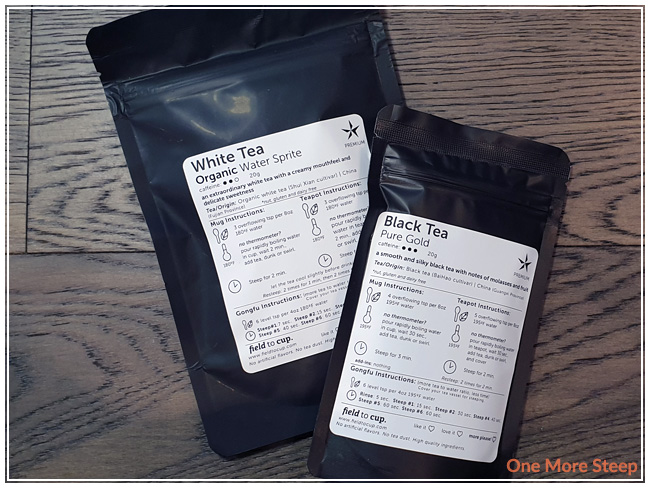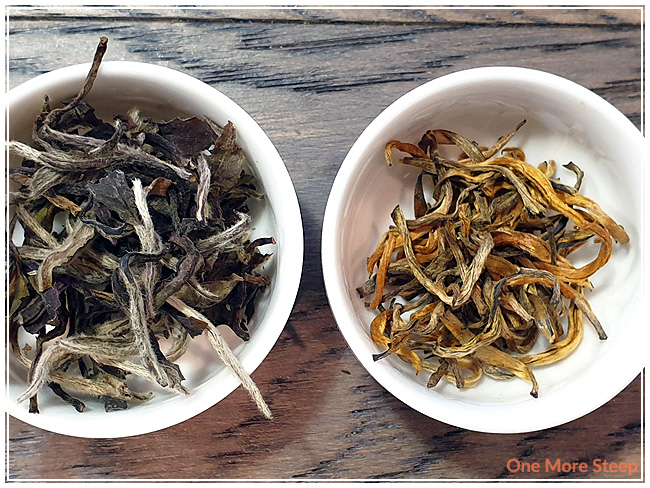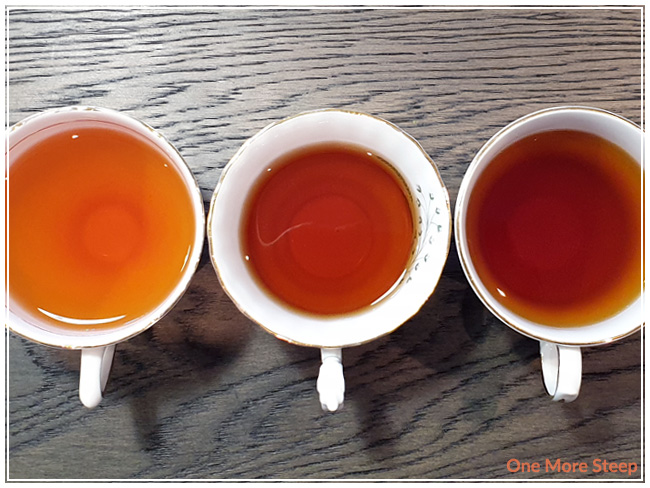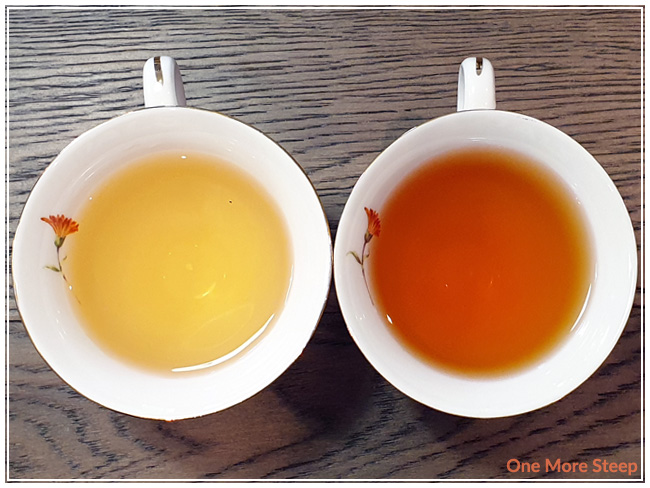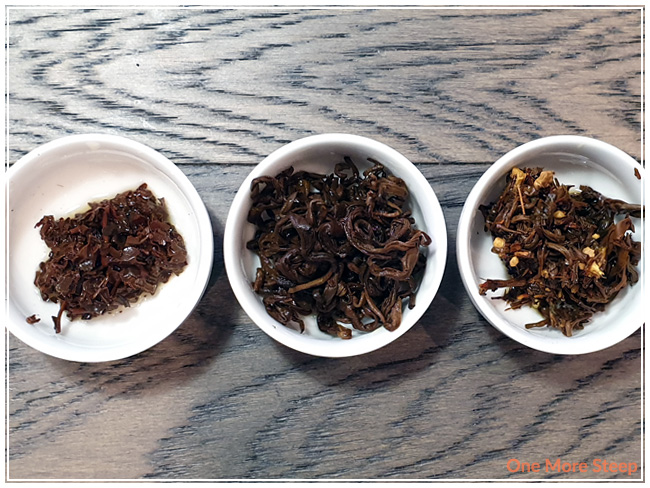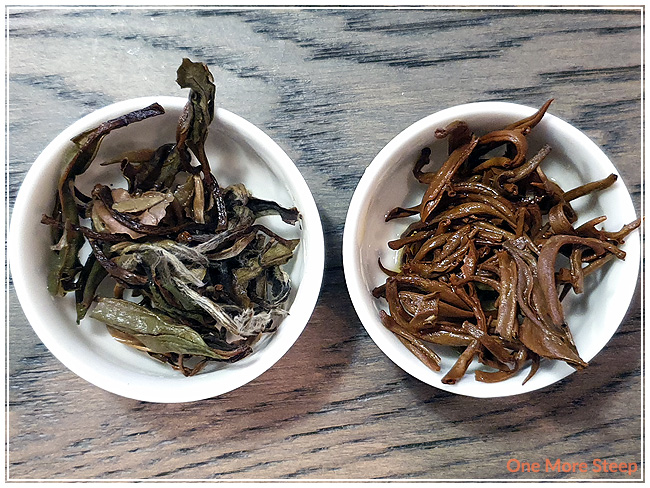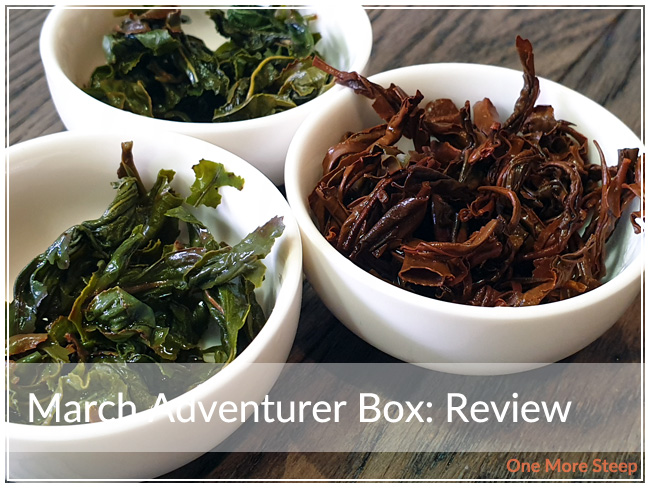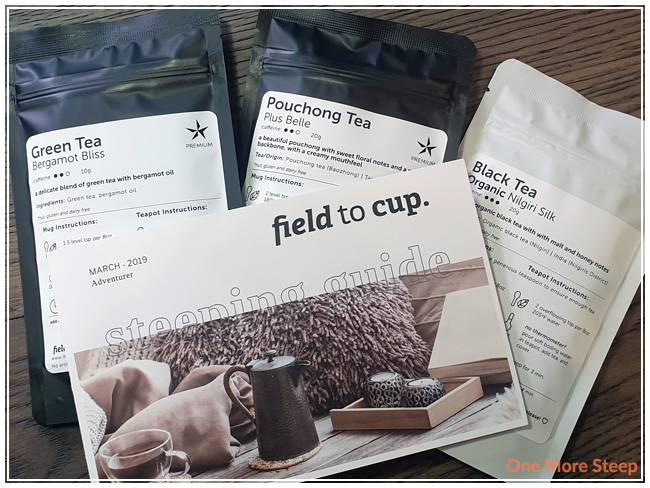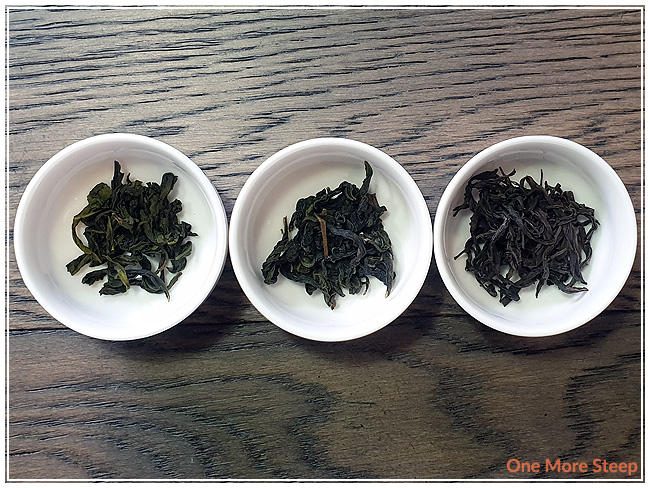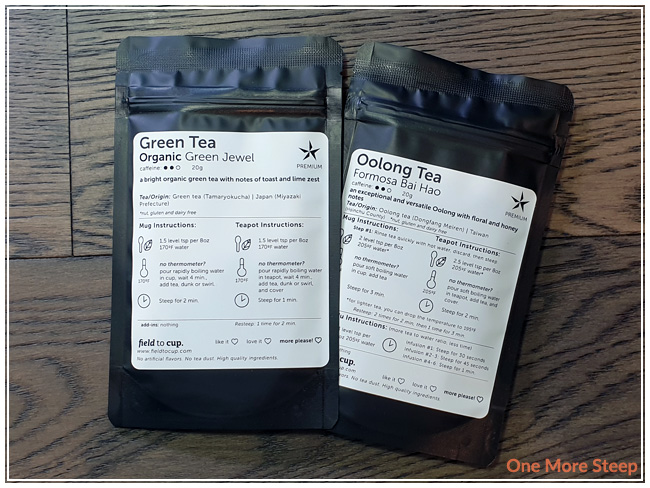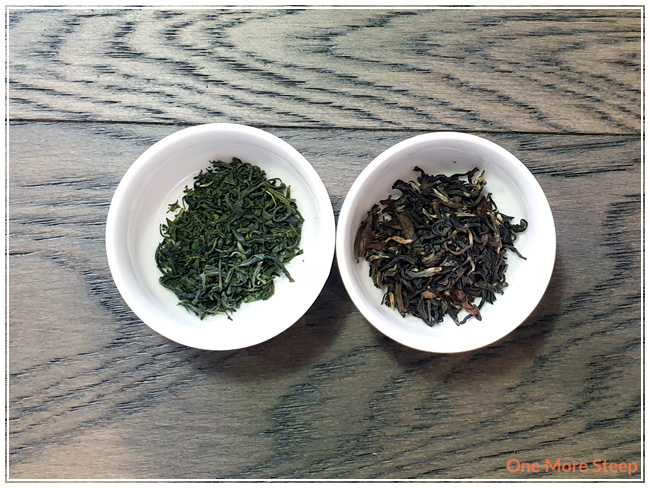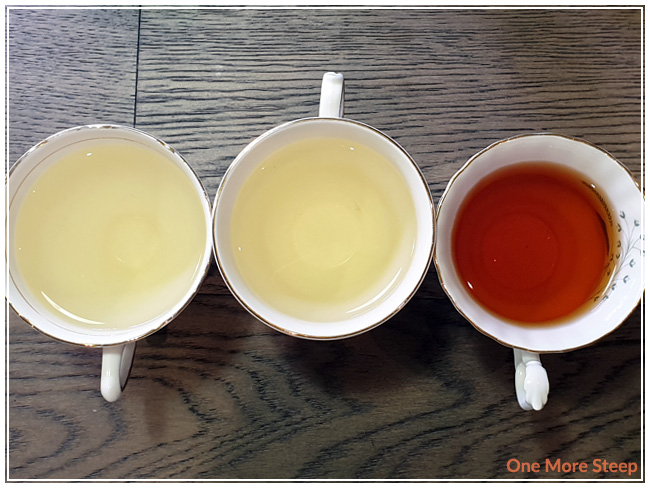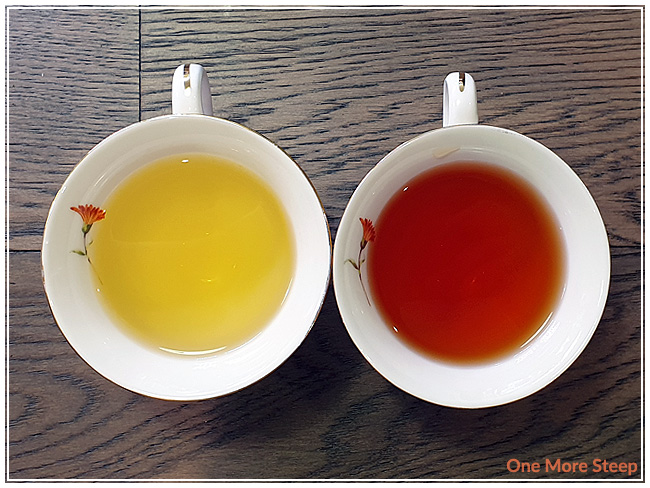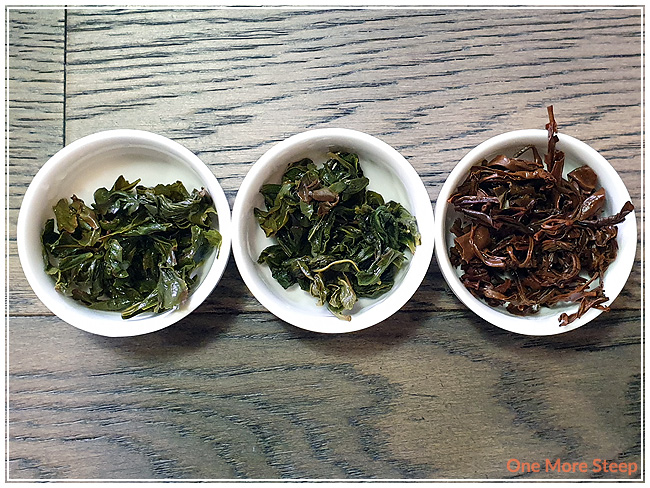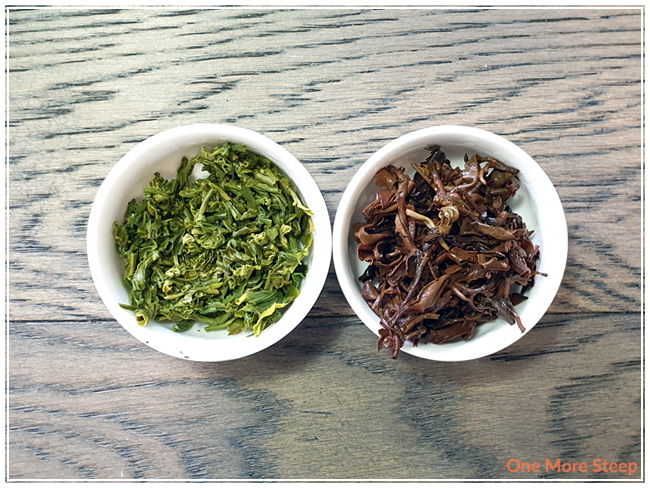May Adventurer Box by Field to Cup
$34.97USD for 1 Adventurer Box (per month)
$356.69USD for 12 Months ($29.72/mo)
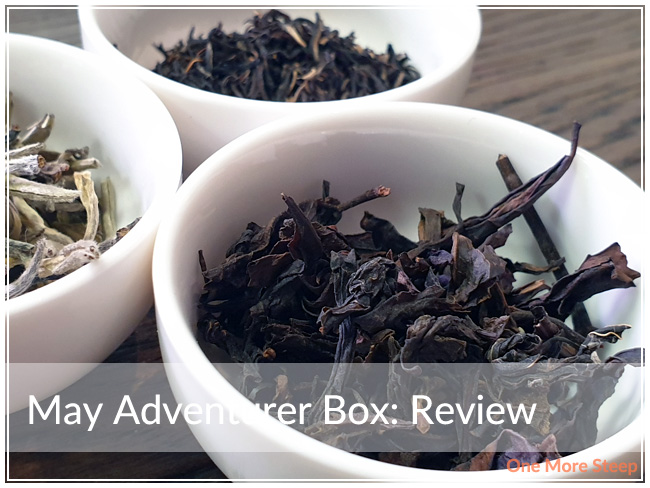
Field to Cup has provided me with the May Adventurer Box for the purposes of writing an honest review.
Use coupon code Onemoresteep20 for 20% off your first order of teas or first month of subscription boxes from Field to Cup!
First Impressions
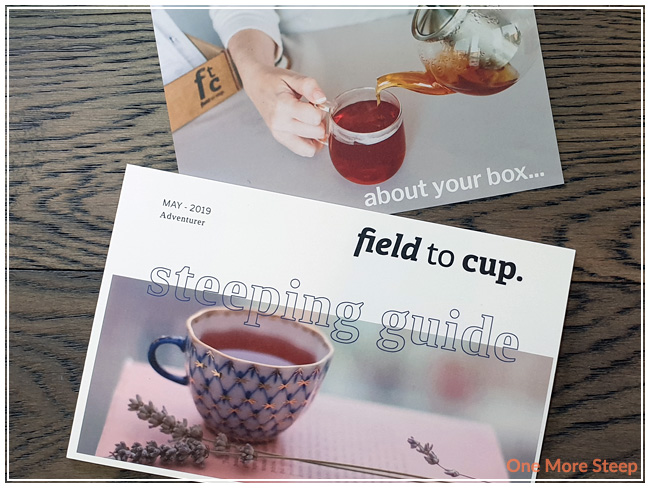
As always, the Adventurer Box came to me in a brown cardboard box – just stuffed full of tea, steeping bags, and the steeping guide catered towards the teas in the box. The May Adventurer Box consists of 5 teas – two green teas and one each of black, oolong, and pu’erh teas. Each tea came in a sealed, resealable pouch that has a label affixed to the front that details the tea, tasting notes, steeping instructions – as well as a guide to steeping it in the appropriate water temperature if you don’t have a thermometer or variable temperature kettle (my kettle is still my favourite small appliance purchase ever).
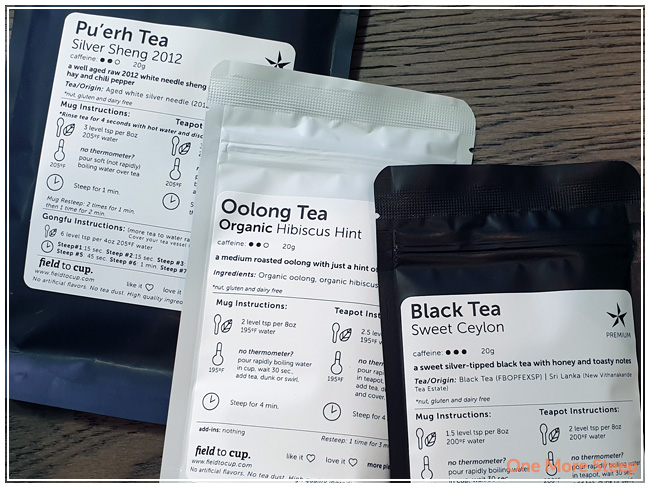
The first trio of teas that I tried from the May Adventurer Box were: Silver Sheng 2012 (pu’erh tea), Organic Hibiscus Hint (oolong tea), and Sweet Ceylon (black tea). Silver Sheng 2012 looks like a silver needle (a white tea), which isn’t surprising as it’s an aged raw 2012 silver needle. The leaves still retain their downy feathers, but is slightly darker than a regular silver needle. This aged white silver needle is from the Yunnan Province of China. Organic Hibiscus Hint has some dark brown leaves that have some deep purple colouration, I can spy some hibiscus in the blend and it smells like preserved plums (those that grew up in an Asian household may know the aroma that I’m talking about!). This blend consist of organic oolong and organic hibiscus. Sweet Ceylon has some dark red and brown leaves, with some golden tips throughout. The primarily aroma is a toasted nutty fragrance that is inviting and reminds me of a savoury tea. Sweet Ceylon consists of Sri Lankan black tea (FBOPFEXSP) from the New Vithanakande Tea Estate.
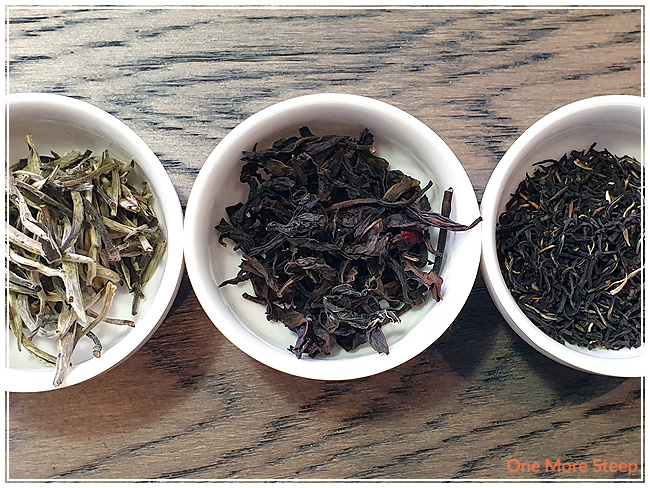
Left to right: Silver Sheng 2012, Organic Hibiscus Hint, Sweet Ceylon.
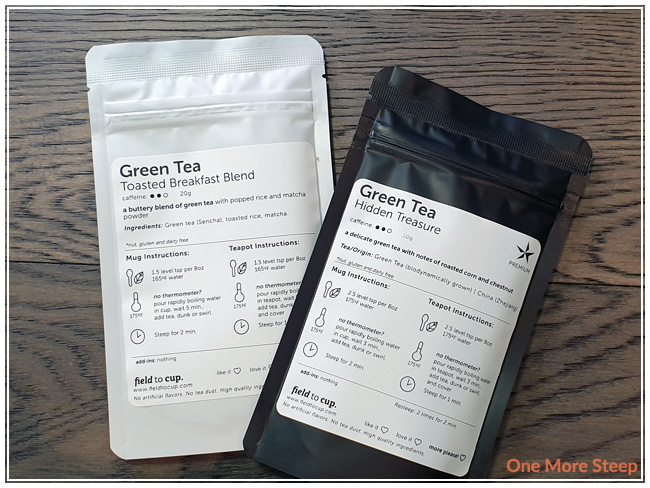
The last duo of teas I tried were Toasted Breakfast Blend and Hidden Treasure, both green teas. Toasted Breakfast Blend smells like a genmaicha – it has the popped rice/popcorn aroma that I’m familiar with, with a hint of ocean/salt water in the background. I can see the matcha powder coating the tea leaves and popped rice. This tea consists of: sencha green tea, toasted rice, and matcha. Hidden Treasures is a biodynamically grown green tea from Zhejiang, China. It has wiry dark green leaves that have an aroma that I would categorize as being a mix of nutty and sweet. I did have to look up what biodynamic agriculture means and essentially it means that it’s a type of farming practice that helps maintain the nutrients in the soil to keep the land sustainable, and is considered a type of organic farming.
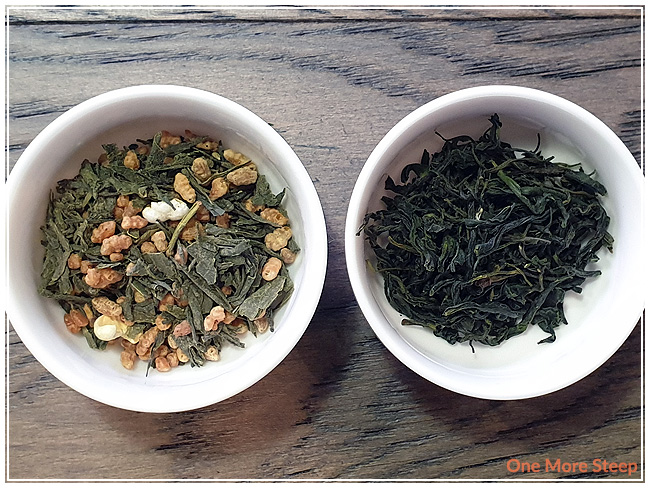
Left to right: Toasted Breakfast Blend, Hidden Treasure.
Preparation
Silver Sheng 2012 is recommended to be steeped in 205°F (96°C) water for 1 minute. I used 200°F (93°C) water for 1 minute.
Organic Hibiscus Hint is recommended to be steeped in 195°F (91°C) water for 4 minutes. I followed the steeping recommendations for the initial steep.
Sweet Ceylon is recommended to be steep in 200°F (93°C) water for 3 minutes. I followed the steeping recommendations for the initial steep.
Toasted Breakfast Blend is recommended to be steeped in 165°F (74°C) water for 2 minutes. I heated my water up to 175°F (79°C) (lowest temperature setting on my Breville IQ Kettle), allowed the water to cool for 3 minutes and then steeped the tea for 2 minutes.
Hidden Treasure is recommended to be steeped in 175°F (79°C) water for 2 minutes. I followed the steeping recommendations for the initial steep.
First Taste
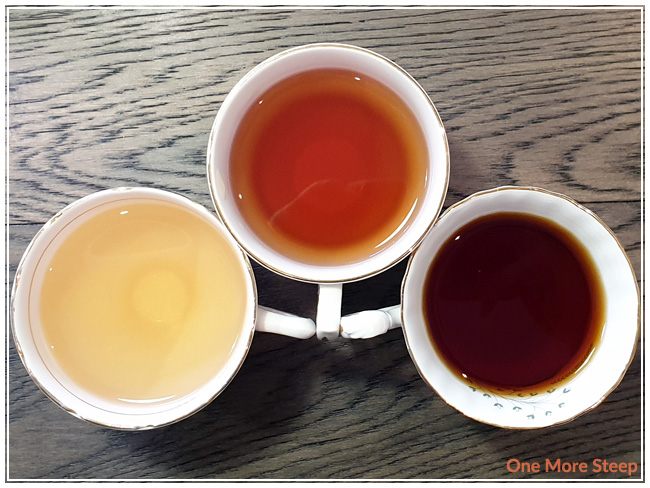
Left to right: Silver Sheng 2012, Organic Hibiscus Hint, Sweet Ceylon.
Silver Sheng 2012 steeps to a light yellow. I found that this pu’erh white tea has a lovely floral grassy and hay notes to it. It’s a smooth cup of tea. The tasting guide suggested that there were chili pepper flavours to it, but I didn’t find that to be the case. However, it is a nice smooth cup of tea and is very easy to drink.
Organic Hibiscus Hint steeps to a lovely orange colour. Surprisingly, there were no plum notes in the steeped tea, compared to the dry leaf. It has a nutty quality to it, and a hint of tartness that I attribute to the addition of the hibiscus in the blend. The hibiscus is not overpowering compared to the oolong base.
Sweet Ceylon has a dark brown colour after steeping. I found it to have a sweet aroma, with a hint of honey sweetness. The strength behind the tea is matched by the astringency from this black tea. Quite a bit of mouth puckering occurred when I drank this, as it reminded me a lot of a breakfast blend.
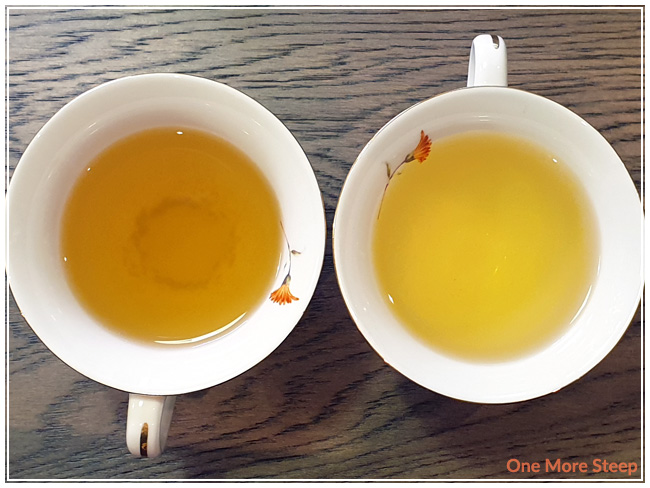
Left to right: Toasted Breakfast Blend, Hidden Treasure.
Toasted Breakfast Blend has a slightly cloudy yellow-green colour to the dry leaf. There’s a nice toasted rice flavour to it, which couples nicely with the creamy green tea base – I found it to be quite vegetal but no astringency to be noted at all.
Hidden Treasure steeps to a light golden yellow. I found it had a pleasant toasted aroma to it – the flavour is primarily vegetal, it reminds me of the flavour of raw spinach but perhaps a few notches lower in flavour compared to the vegetable.
A Second Cup?
The best resteeping tea in the box is Silver Sheng 2012. I resteeped it four times (adding an additional 30 seconds for each subsequent steep) and found that the flavour remained fairly consistent throughout, just a bit weaker with each steep. Organic Hibiscus Hint did fairly well with being resteeped – I resteeped the same leaves twice and found that the oolong became more prominent as the hibiscus fade. Sweet Ceylon did a lovely job with being resteeped (I did two resteeps of the same leaves) – the astringency was still present with each steep, but it lessened over time.
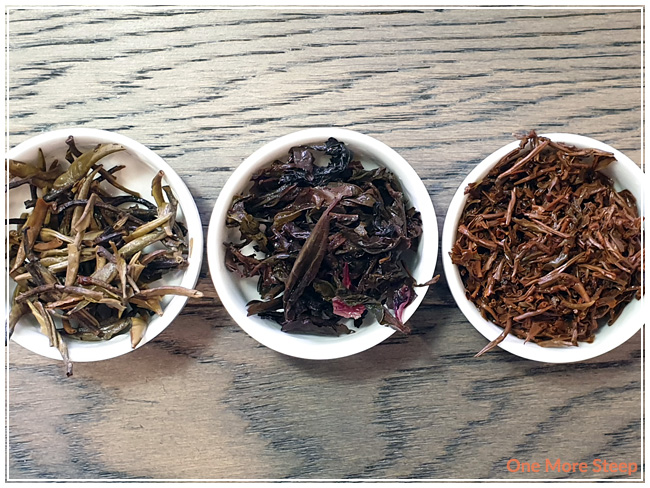
Left to right: Silver Sheng 2012, Organic Hibiscus Hint, Sweet Ceylon.
I attempted a resteep of Toasted Breakfast Blend but I found that the toasted rice flavour just wasn’t as strong as the initial steep, so this is one tea that I would recommend just one steep of. Hidden Treasure did remarkably well with two resteeps of the same leaves, I found that the flavour stayed fairly consistent throughout each steep.
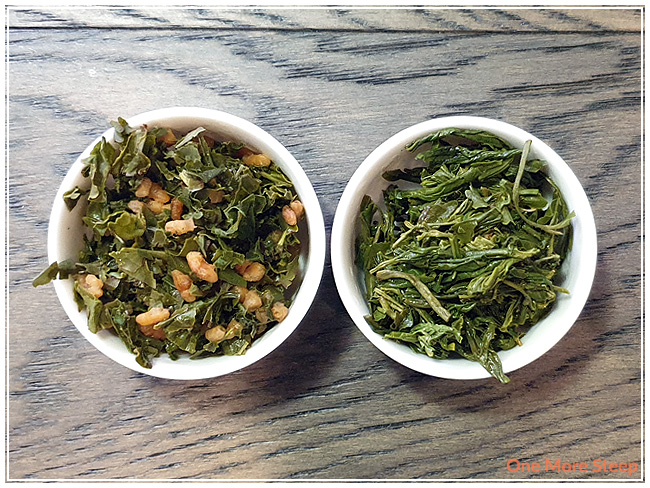
Left to right: Toasted Breakfast Blend, Hidden Treasure.
My Overall Impression
![]()
I loved Field to Cup’s May Adventurer Box. I feel like this month’s box is a fantastic combination of teas – especially for those who love the traditional teas. My favourites would have to be Silver Sheng 2012 and Toasted Breakfast Blend. I found that almost all of the teas did well with being resteeped, which just showcases the quality of the tea leaves showing up in the boxes! As always, you can opt to purchase the box as a whole or pick and choose your teas to try via the Field to Cup website (and don’t forget to use the coupon code Onemoresteep20 for 20% off your first tea purchase or first month of a box subscription!)
Curious about the cup rating system? Click here to learn more.
